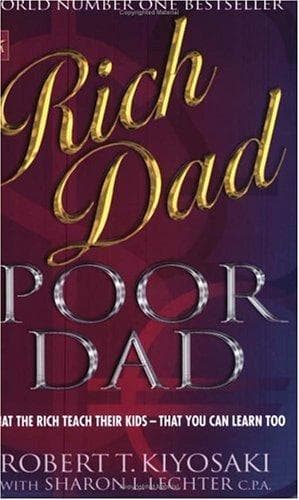Key Points:
- Financial Literacy: Emphasizes the importance of financial education and understanding assets versus liabilities.
- Mindset Shift: Encourages readers to adopt a wealth-building mindset and think like investors rather than employees.
- Real Estate and Entrepreneurship: Advocates for investing in real estate and starting businesses as paths to financial independence.
- Critique of Traditional Education: Challenges the traditional education system and its focus on preparing individuals to be employees rather than entrepreneurs.
Summary:
“Rich Dad, Poor Dad” by Robert T. Kiyosaki is a widely read personal finance book that contrasts the financial philosophies of Kiyosaki’s “rich dad” (his best friend’s father) and “poor dad” (his biological father). The book emphasizes the importance of financial literacy, the difference between assets and liabilities, and the value of investing in real estate and businesses to achieve financial independence.
After seeing it on so many people’s reading lists, I figured I should try and read it (during the pandemic haha). In this book, Kiyosaki critiques the traditional education system for failing to teach practical financial skills, arguing that it prepares individuals to be employees rather than entrepreneurs. He encourages readers to think like investors, acquire assets that generate income, and develop a mindset geared towards wealth-building.
While “Rich Dad, Poor Dad” has been praised for its motivational and thought-provoking content, it has also faced criticism. Some reviewers highlight the book’s vague advice and the dubious authenticity of its anecdotes. Over recent years, Robert Kiyosaki’s kind of ruined his reputation by being hyperbolic about the economy, debt, etc. Here are some links if you want to learn more. Rich Dad Poor Dad - Wikipedia Rich Dad, Poor Dad Review - Revisited 20 Years Later | Moneywise.
Overall, this book is a valuable starting point for those looking to rethink their approach to money and investing, but readers should be cautious and critical of its advice.⬤




